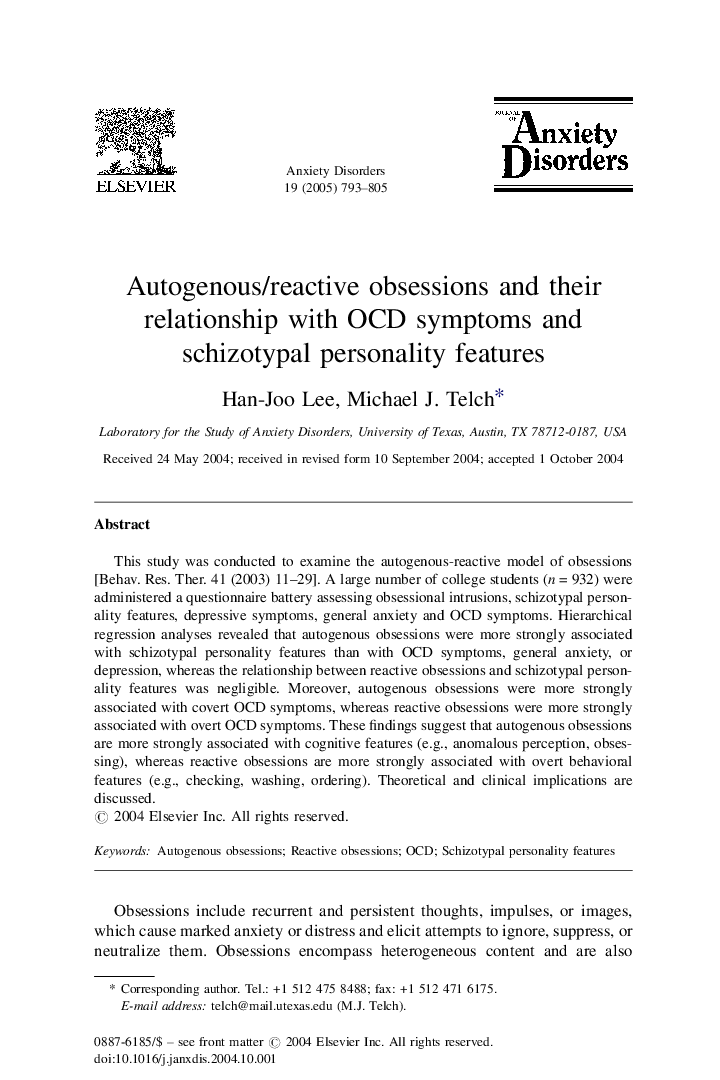| Article ID | Journal | Published Year | Pages | File Type |
|---|---|---|---|---|
| 10447804 | Journal of Anxiety Disorders | 2005 | 13 Pages |
Abstract
This study was conducted to examine the autogenous-reactive model of obsessions [Behav. Res. Ther. 41 (2003) 11-29]. A large number of college students (n = 932) were administered a questionnaire battery assessing obsessional intrusions, schizotypal personality features, depressive symptoms, general anxiety and OCD symptoms. Hierarchical regression analyses revealed that autogenous obsessions were more strongly associated with schizotypal personality features than with OCD symptoms, general anxiety, or depression, whereas the relationship between reactive obsessions and schizotypal personality features was negligible. Moreover, autogenous obsessions were more strongly associated with covert OCD symptoms, whereas reactive obsessions were more strongly associated with overt OCD symptoms. These findings suggest that autogenous obsessions are more strongly associated with cognitive features (e.g., anomalous perception, obsessing), whereas reactive obsessions are more strongly associated with overt behavioral features (e.g., checking, washing, ordering). Theoretical and clinical implications are discussed.
Related Topics
Health Sciences
Medicine and Dentistry
Psychiatry and Mental Health
Authors
Han-Joo Lee, Michael J. Telch,
